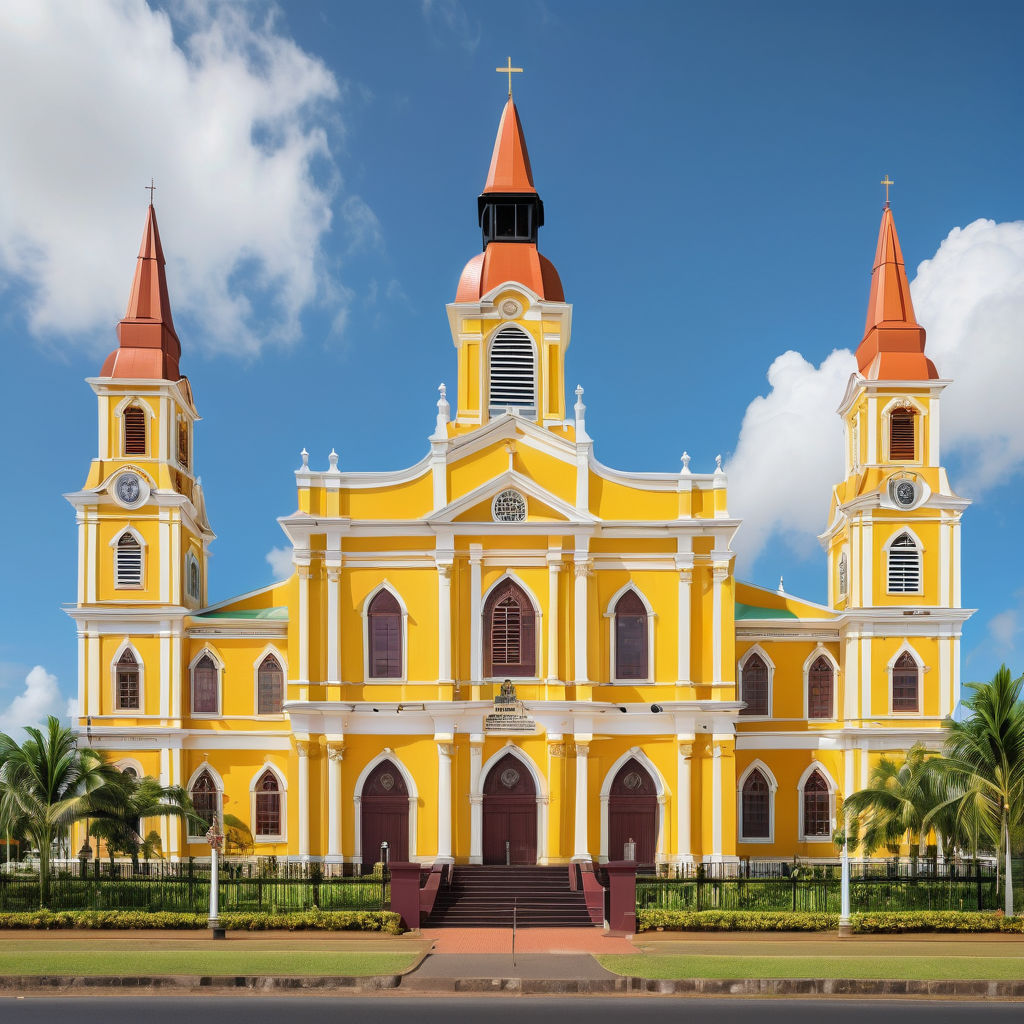Introduction to Suriname: A Blend of Cultures and Traditions
Exploring Suriname: Rich Heritage and Cross-cultural Interactions

Introduction to Suriname
Suriname, a small but culturally rich country located on the northeastern coast of South America, is bordered by the Atlantic Ocean to the north, French Guiana to the east, Brazil to the south, and Guyana to the west. The capital city, Paramaribo, is the political, economic, and cultural hub, known for its well-preserved Dutch colonial architecture and vibrant multicultural atmosphere. Suriname’s cultural heritage is a tapestry woven from its indigenous roots and influences from African, Asian, European, and Caribbean communities. This cultural diversity is celebrated through a variety of festivals, music, dance, and cuisine. The annual Suriname Jazz Festival and the Pagara Festival, which marks the end of the year with spectacular fireworks and cultural performances, showcase the nation's unique blend of traditions. Traditional dishes such as roti, pom, and cassava bread reflect the country's diverse culinary heritage.
Cross-national and Cross-cultural Understanding
Suriname’s population is known for its open and welcoming attitude towards other cultures. This openness is rooted in the country's history as a melting pot of ethnicities and cultures. Surinamese people generally perceive and engage with other cultures positively, valuing the rich diversity that international interactions bring. Cultural exchanges are a significant part of life in Suriname. The country hosts numerous festivals and events that celebrate both local and international traditions. The Carifesta, a Caribbean festival of arts, brings together artists from across the Caribbean to share their cultural heritage through music, dance, and visual arts. Additionally, the Chinese New Year and Diwali celebrations reflect the significant Chinese and Indian communities in Suriname, promoting cross-cultural understanding and mutual appreciation. Educational programs in Suriname emphasize global awareness and cross-cultural understanding. Schools and universities incorporate multicultural perspectives into their curricula, encouraging students to appreciate and respect diversity. The Anton de Kom University of Suriname collaborates with international institutions to facilitate student and faculty exchanges, enriching the educational experience and fostering global connections.
Interactions and Social Dynamics
Typical interactions between Surinamese people and foreigners are characterized by friendliness, respect, and a strong sense of community. Social behaviors in Suriname reflect a blend of traditional customs and contemporary influences, emphasizing respect for others, hospitality, and communal living. Communication styles in Suriname are generally informal and friendly. Dutch is the official language, but Sranan Tongo (a creole language), Hindi, Javanese, and various indigenous languages are also widely spoken, reflecting the country’s linguistic diversity. This multilingualism facilitates interactions with tourists and expatriates, making it easier for them to integrate into the local community. Cultural norms in Suriname place a strong emphasis on respect for elders, community involvement, and a relaxed approach to life. These norms create a welcoming and inclusive atmosphere for foreigners, who often find it easy to adapt to the local way of life. Public displays of affection are generally accepted, reflecting the country’s relaxed social attitudes.
Views on Dating and Relationships
Attitudes towards dating and relationships with foreigners in Suriname are generally positive. Surinamese people are open to forming relationships with individuals from different cultural backgrounds, recognizing the enrichment that such diversity brings to their lives. However, cultural expectations and traditions do play a role in shaping these views. Family involvement is significant in relationships in Suriname, with elders often playing a crucial role in the approval process. Traditional customs emphasize respect, patience, and the gradual building of trust in relationships. While modern dating practices influenced by global trends are becoming more common among younger generations, traditional values still hold sway in many communities.
Marriage and Family
Marrying a foreigner in Suriname involves navigating both legal and social considerations. Legally, the country has clear regulations governing marriage, including residency requirements and the need for proper documentation. Socially, cross-cultural marriages are generally accepted, though couples may face challenges related to cultural differences and integration. Familial acceptance is a key factor in cross-cultural marriages. Surinamese families can be protective, and gaining their approval is often essential for the relationship's success. However, the diverse cultural landscape of Suriname means that many families are already familiar with and accepting of different cultural backgrounds, which can facilitate smoother integration for foreign spouses. Trends in cross-cultural marriages reflect Suriname's open and inclusive society. Many Surinamese who travel abroad for education or work form relationships with individuals from various cultures, bringing back diverse customs and traditions that enrich the local community.